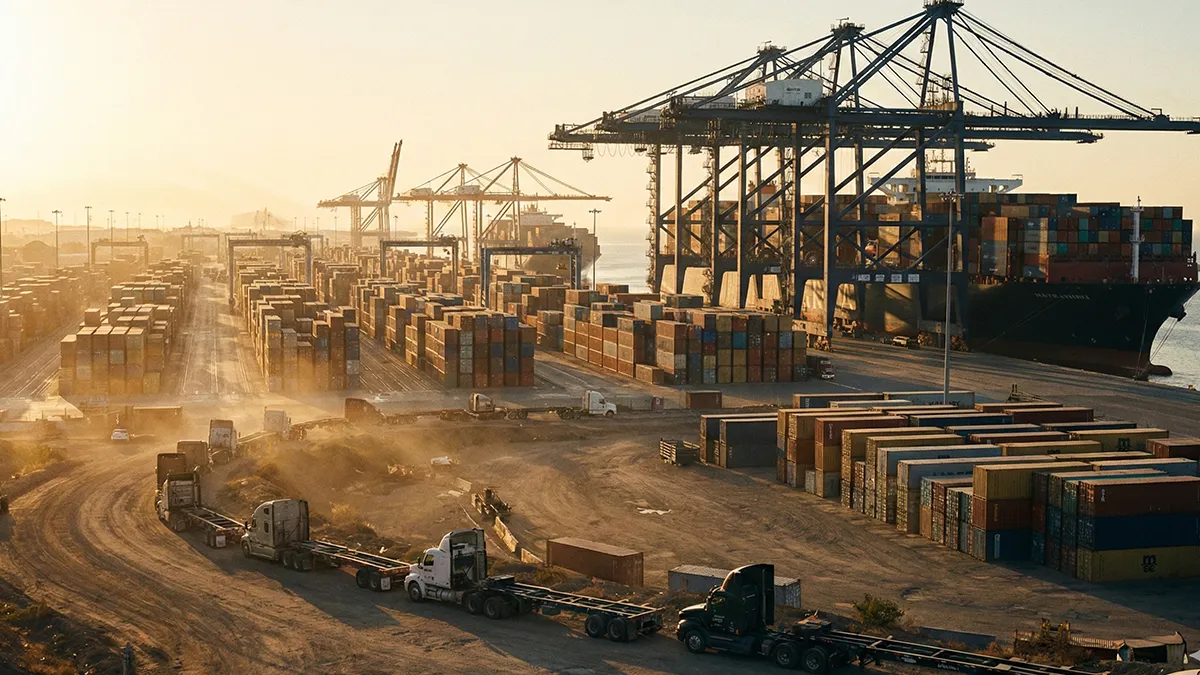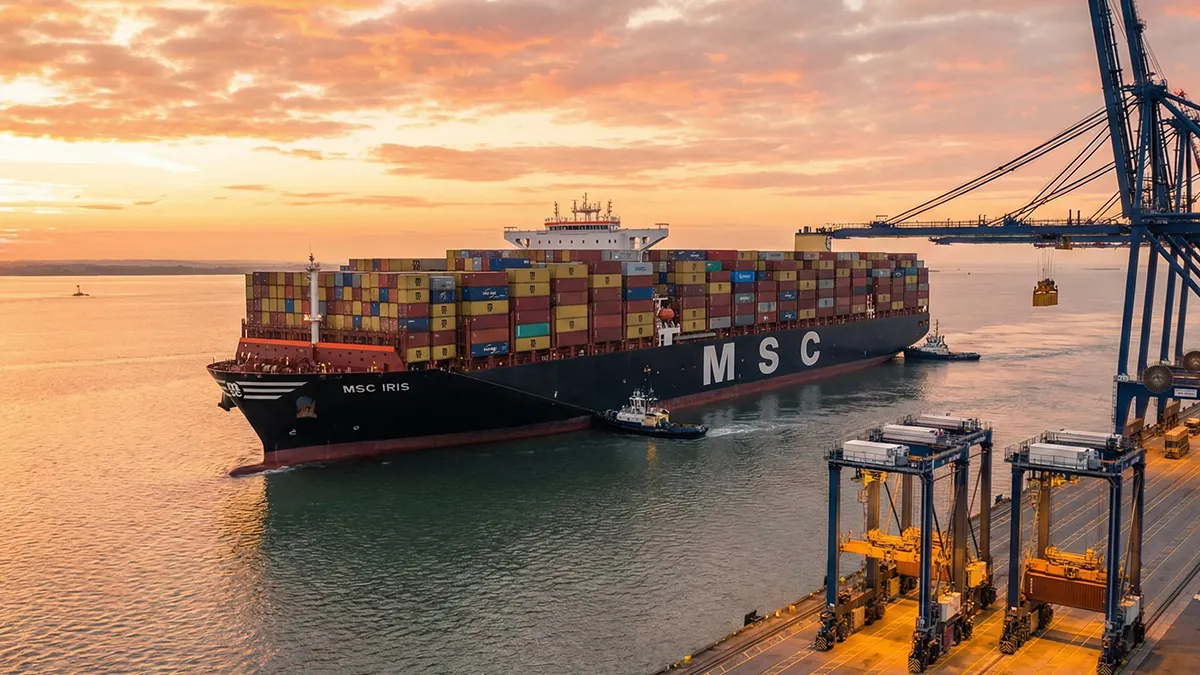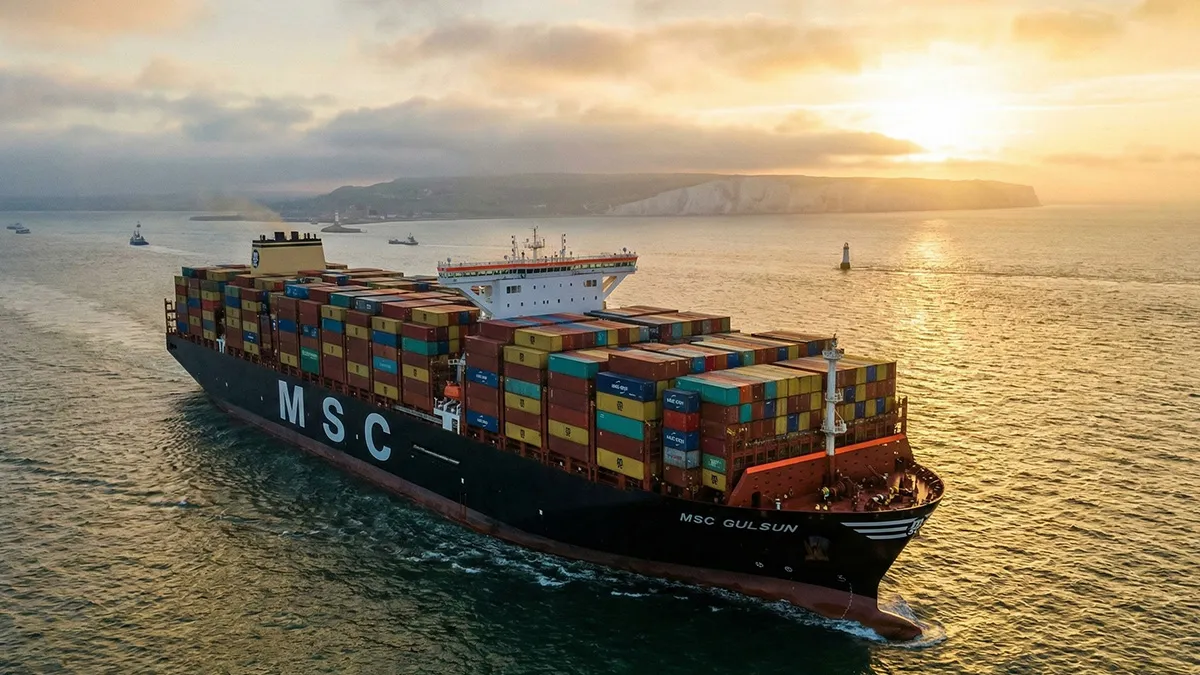A Complete Guide to the Importer of Record (IOR) and Exporter of Record (EOR)
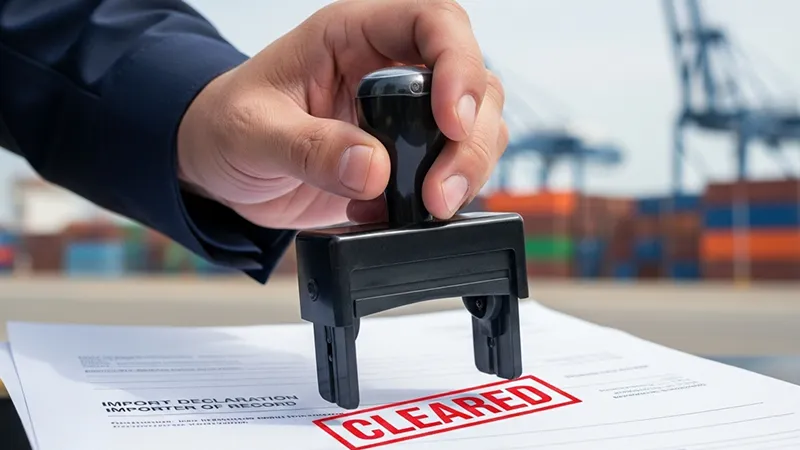
When it comes to global trade and the world of the importer exporter, two important roles often cause confusion: the Importer of Record (IOR) and the Exporter of Record (EOR). For any business involved in export and imports, understanding the difference in the exporter of record vs importer of record is essential for ensuring that international shipments follow legal and regulatory requirements.
This guide will break down the importer of record definition, explain the exporter of record meaning, and detail why these roles matter for your business.
Defining the Roles: Importer of Record vs. Exporter of Record
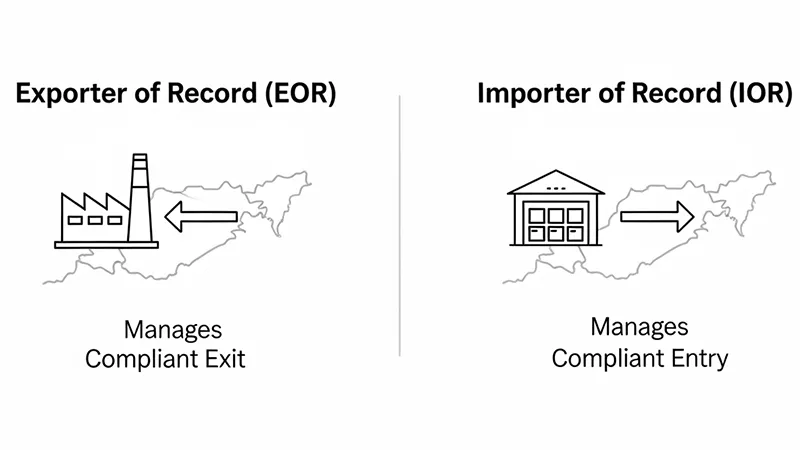
So, what are IOR and EOR? These are the legally designated entities responsible for a shipment in the eyes of government and customs authorities.
-
Importer of Record (IOR): The IOR is the entity or individual responsible for handling all legal aspects of importing goods into a country. This includes paying taxes, duties, and fees, ensuring compliance with all local regulations, and acting as the official representative of the importer. The ior meaning in shipping is that this entity is the one legally liable for the shipment.
-
Exporter of Record (EOR): The EOR has similar responsibilities but focuses on exports. The eor exporter of record ensures that goods leaving a country meet all legal requirements, handles necessary documentation, and prevents customs delays at the point of origin.
Why Do I Need an IOR or EOR Service?
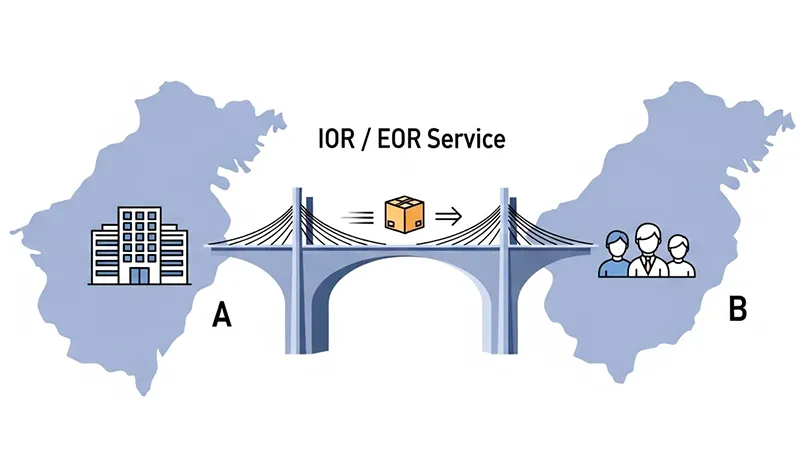
International shipping involves many rules and taxes that vary by country. Without a designated IOR and EOR, businesses can face customs delays, legal issues, and extra costs.
The key benefits of using IOR EOR services include:
-
Faster Customs Clearance: An experienced ior service provider ensures all paperwork is correct, leading to smoother and faster shipments.
-
No Need for a Local Legal Entity: You can import into a country without having to set up a local company, saving immense time and money. This is a primary function of ior companies.
-
Full Compliance: A professional importer of record service guarantees your shipment meets all local import/export laws.
-
Reduced Risk: Mitigates the risk of shipment delays due to regulatory issues, a core component of ior eor logistics.
Key Responsibilities of an Importer of Record (IOR)
The company providing Importer of Record (IOR) services can act as either the owner or the purchaser of foreign merchandise. The ior importer of record may also serve as a customs broker with power of attorney (POA) to act on behalf of the importer. The ior definition is tied to these key responsibilities:
-
Classifying and Valuing Goods: The IOR is responsible for correctly classifying goods with the proper HS codes and accurately declaring their value before import. This is crucial for determining the correct duty and tax rates.
-
Ensuring Customs Compliance: The record of importer must ensure that the goods meet all of the destination country's customs requirements and regulations.
-
Paying Duties, Taxes, and Tariffs: The IOR is legally responsible for paying all applicable import duties, taxes (like VAT/GST), and any other tariffs levied by the government.
-
Submitting Declarations: The IOR must submit all necessary declarations and documents to the relevant government agencies.
-
Preparing Permits and Certifications: The IOR is responsible for preparing and filing for any required permits, certifications, or licenses needed for the specific goods to enter the country.
Key Responsibilities of an Exporter of Record (EOR)
The exporter of record definition encompasses all responsibilities related to legally exporting goods from a country. What does EOR stand for? It stands for Exporter of Record.
The key exporter of record responsibilities include:
-
Managing the Export Process: The EOR oversees the entire export process from start to finish.
-
Ensuring Export Compliance: The EOR must ensure that the goods comply with all export regulations of the origin country.
-
Handling Export Documentation: This includes preparing and filing export declarations and all other required documentation for the export of record.
-
Coordinating with Customs: The EOR coordinates with customs authorities to ensure a smooth shipment departure.
When is an IOR/EOR Service Necessary?
You will likely need to hire an ior service provider in these common scenarios:
-
Expanding to a New Country: You want to sell products in a country where you do not have a registered business entity. A professional service can act as your local importer.
-
Shipping DDP (Delivered Duty Paid): If you are a seller shipping on DDP terms, you are responsible for import clearance. An IOR in the destination country is essential.
-
Complex Regulations: For certain goods or countries with complex rules, an expert is needed. Whether you need IOR EOR services in KSA or an exporter of record philippines, a knowledgeable partner is key.
Frequently Asked Questions (FAQ)
-
1. Who is the exporter of record?
-
The exporter of record is the entity named on the export documents who is legally responsible for ensuring the shipment complies with all export regulations of the origin country.
-
-
2. What is the difference in the exporter of record vs importer of record?
-
The key difference in the importer vs exporter roles is the direction of trade. The EOR is responsible for the legal export out of a country, while the IOR is responsible for the legal import into a country.
-
-
3. What does IOR stand for?
-
What does ior stand for? It stands for Importer of Record, the legally recognized entity for an import.
-
-
4. Is the IOR the same as the consignee?
-
Not always. The consignee is the party receiving the goods. The IOR is the party legally responsible for the import. They can be the same, but in an ior service model, the provider is the IOR.
-
This section is designed for FAQPage Schema.
Your Partner for Global Compliance
Whether you're an importer or exporter, working with a trusted IOR/EOR service ensures compliance, efficiency, and peace of mind. These ior eor services simplify global trade, allowing businesses to expand without dealing with complex legal hurdles. Our end-to-end, one-stop logistics solutions often include IOR and EOR services, enabling you to ship with confidence, anywhere in the world.
